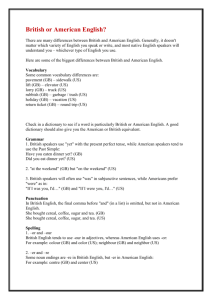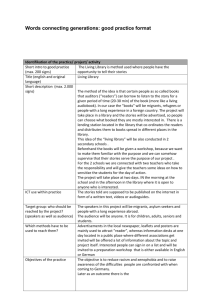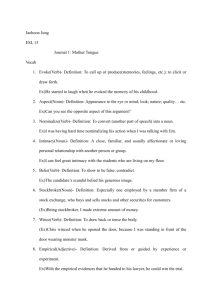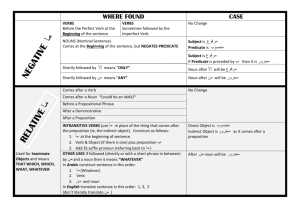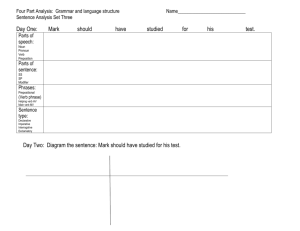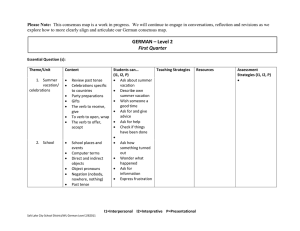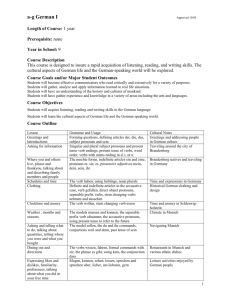Ten Common Errors
advertisement
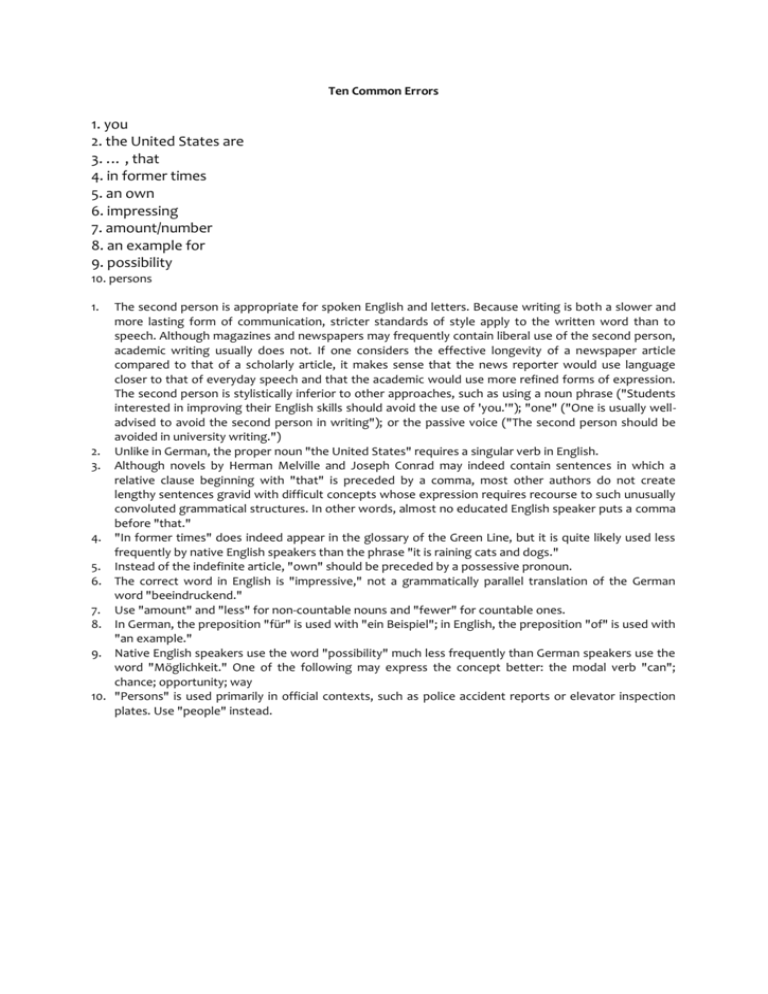
Ten Common Errors 1. you 2. the United States are 3. … , that 4. in former times 5. an own 6. impressing 7. amount/number 8. an example for 9. possibility 10. persons 1. The second person is appropriate for spoken English and letters. Because writing is both a slower and more lasting form of communication, stricter standards of style apply to the written word than to speech. Although magazines and newspapers may frequently contain liberal use of the second person, academic writing usually does not. If one considers the effective longevity of a newspaper article compared to that of a scholarly article, it makes sense that the news reporter would use language closer to that of everyday speech and that the academic would use more refined forms of expression. The second person is stylistically inferior to other approaches, such as using a noun phrase ("Students interested in improving their English skills should avoid the use of 'you.'"); "one" ("One is usually welladvised to avoid the second person in writing"); or the passive voice ("The second person should be avoided in university writing.") 2. Unlike in German, the proper noun "the United States" requires a singular verb in English. 3. Although novels by Herman Melville and Joseph Conrad may indeed contain sentences in which a relative clause beginning with "that" is preceded by a comma, most other authors do not create lengthy sentences gravid with difficult concepts whose expression requires recourse to such unusually convoluted grammatical structures. In other words, almost no educated English speaker puts a comma before "that." 4. "In former times" does indeed appear in the glossary of the Green Line, but it is quite likely used less frequently by native English speakers than the phrase "it is raining cats and dogs." 5. Instead of the indefinite article, "own" should be preceded by a possessive pronoun. 6. The correct word in English is "impressive," not a grammatically parallel translation of the German word "beeindruckend." 7. Use "amount" and "less" for non-countable nouns and "fewer" for countable ones. 8. In German, the preposition "für" is used with "ein Beispiel"; in English, the preposition "of" is used with "an example." 9. Native English speakers use the word "possibility" much less frequently than German speakers use the word "Möglichkeit." One of the following may express the concept better: the modal verb "can"; chance; opportunity; way 10. "Persons" is used primarily in official contexts, such as police accident reports or elevator inspection plates. Use "people" instead.
